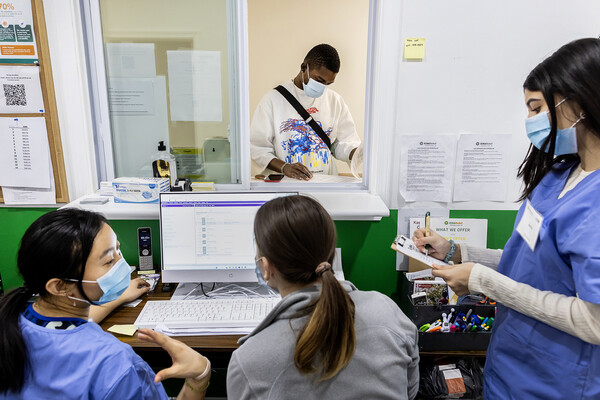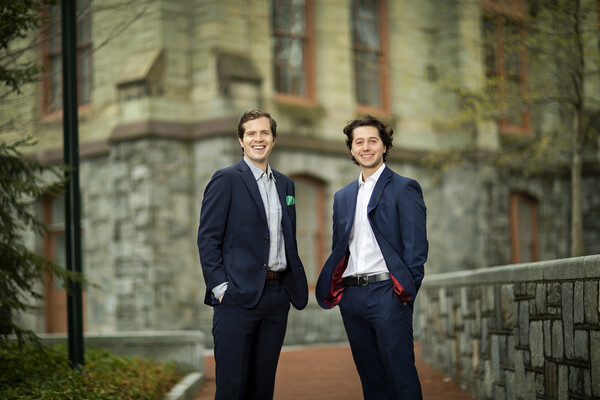nocred
Articles from Katherine Unger Baillie

Besides being a fun event for the community, funds from the 5K are going to research and awareness-raising activities related to oral cancer.
(Image: Michael Troka)
Running and walking for oral cancer awareness

While many Earth Week events are intended to inspire or teach, others are available for participants to simply enjoy being in nature.
(Image: Kylie Cooper)
Celebrating Earth Week at Penn

Undergraduates Sophie Gu, Julia Badolato, and Julie Elfishawy help Kiston Farquharson check out of the ICNA Relief SHAMS Clinic following his appointment. The Penn students are members of Shelter Health Outreach Program, a student club which, through a Projects for Progress award, is working with Penn Medicine physicians to provide primary care at SHAMS Clinic and mobile clinic sites around Philadelphia.
nocred
The care they need, where they are

“Technology often has mixture of benefits and perils,” says Gideon Nave of the Wharton School. He teamed with legal and scientific experts to call for research to fuel evidence-backed laws and policies to protect children in the digital world.
(Image: iStock)
To protect children online, researchers call for cross-disciplinary collaboration
 Eli Moraru won the 2022 President’s Sustainability Prize for his work with Alex Imbot on The Community Grocer (TCG). Moraru and Imbot hope to launch a new business model, revolutionizing food stamp usage by reinventing the corner store and reimagining nutritional assistance.
Eli Moraru won the 2022 President’s Sustainability Prize for his work with Alex Imbot on The Community Grocer (TCG). Moraru and Imbot hope to launch a new business model, revolutionizing food stamp usage by reinventing the corner store and reimagining nutritional assistance.nocred
Winners of President’s Sustainability Prize are making a difference for people and the planet

nocred
Climate scientist Michael Mann makes a home at Penn

Rohit Aggarwala of the NYC Environmental Protection underscored that managing for drought necessitates cross-border cooperation. “If we think of this as a zero-sum game, we’re going to lose,” he said.
nocred
First UN Water Conference in four decades includes a delegation from Penn

Urban centers are feeling the burden of extreme heat events. Chief heat officers from around the globe will reflect on the challenges they face and the adaptation strategies they are implementing in a discussion at Perry World House.
(Image: iStock/deberarr)
In a warming world, chief heat officers help adapt, prepare, and protect

An icon at Morris Aboretum, a many-trunked katsura tree is among those specimens featured in “Philadelphia Trees.” It was planted in the early 1900s.
(Image: Paul W. Meyer)